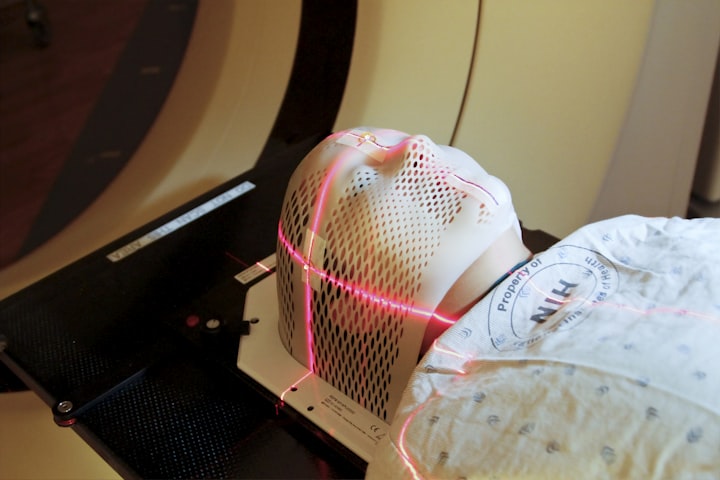Is LASIK Surgery A Permanent Solution To Improve Vision?
LASIK, or Laser-Assisted in Situ Keratomileusis, is a popular surgical procedure used to correct a variety of vision problems, including nearsightedness, farsightedness, and astigmatism.

LASIK, or laser-assisted in situ keratomileusis, is a popular surgical procedure used to correct a variety of vision problems, including nearsightedness, farsightedness, and astigmatism. The procedure involves using a laser to reshape the cornea, the clear front surface of the eye, to improve the eye's ability to focus light properly. But is LASIK surgery a permanent solution to improve vision?
The short answer is that LASIK surgery can be a permanent solution to improve vision for many people, but there are some factors to consider.
First, it is important to understand that LASIK does not prevent the natural changes that occur in the eyes over time. As we age, our eyes may change shape, and we may experience changes in our vision as a result. Additionally, LASIK surgery does not prevent or treat other eye conditions, such as cataracts or glaucoma.
However, for many people, LASIK can provide long-lasting improvement in vision. In fact, the American Society of Cataract and Refractive Surgery reports that the vast majority of people who undergo LASIK achieve 20/20 vision or better after the procedure. Additionally, many people who undergo LASIK are able to reduce or eliminate their dependence on glasses or contact lenses.
So why is LASIK effective for many people? The answer lies in the way the procedure works. During LASIK surgery, a surgeon creates a thin flap in the cornea using a laser or a microkeratome, a special surgical instrument. The flap is then lifted, and a laser is used to reshape the cornea, correcting the underlying vision problem. Finally, the flap is repositioned and allowed to heal.
The reshaping of the cornea is a permanent change, which means that the improvement in vision can also be permanent. However, it is important to note that the success of LASIK depends on a number of factors, including the severity of the underlying vision problem, the age and overall health of the patient, and the skill and experience of the surgeon performing the procedure.

Additionally, not everyone is a good candidate for LASIK. People with certain medical conditions, such as autoimmune disorders or uncontrolled diabetes, may not be good candidates for the procedure. Additionally, people with thin or irregular corneas may not be able to undergo LASIK, as the procedure can weaken the cornea and cause further vision problems.
It is also important to understand that LASIK is not a one-time procedure for everyone. Some people may experience a regression of their vision correction over time and may require additional procedures, such as a touch-up LASIK procedure, to maintain their vision. Additionally, some people may experience side effects or complications after LASIK, such as dry eyes or halos around lights, which can affect their vision and may require additional treatment.
Despite these considerations, LASIK can be a safe and effective option for many people who want to improve their vision. To determine if LASIK is right for you, it is important to undergo a thorough eye exam and consultation with an experienced eye surgeon. Your surgeon can evaluate your eye health and help you understand the potential risks and benefits of LASIK, as well as any alternatives that may be available.
In addition to LASIK, there are other surgical options for correcting vision problems, such as photorefractive keratectomy (PRK) and implantable collamer lenses (ICLs). Like LASIK, these procedures involve reshaping the cornea to improve vision. However, they may be more appropriate for people with certain eye conditions or who are not good candidates for LASIK.
Ultimately, the decision to undergo LASIK or any other vision correction surgery is a personal one that should be made in consultation with a qualified eye surgeon.
By carefully considering the risks and benefits of the procedure and ensuring that you are a good candidate for the surgery, you can make an informed decision about whether LASIK or another surgical option is right for you.
It is also important to follow your surgeon's post-operative instructions carefully to ensure a smooth recovery and optimal results. This may include avoiding activities such as swimming or contact sports for a period of time after surgery and using eye drops to prevent infection and promote healing.
It is worth noting that while LASIK can be a permanent solution to improve vision, it cannot prevent the natural changes that occur in the eyes over time. As we age, our vision may naturally deteriorate, and we may develop new vision problems. Additionally, LASIK does not protect the eyes from other eye conditions or diseases, such as cataracts or glaucoma, which may develop later in life.
In conclusion, LASIK surgery can be a safe and effective option for many people who want to improve their vision. While it is not a guarantee of permanent perfect vision, it can provide long-lasting improvement in vision for many people. However, it is important to carefully consider the risks and benefits of the procedure and to undergo a thorough eye exam and consultation with an experienced eye surgeon to determine if LASIK or another surgical option is right for you. With proper care and follow-up, LASIK can be a valuable tool in helping you achieve and maintain a clear, comfortable vision for years to come.
About the Creator
iefsafrica
I like writing and drinking coffee.
Buy me a coffee ☕: https://ko-fi.com/iefsafricagroup45913
Support me:https://medium.com/@iefsafrica/membership (affiliate)






Comments
There are no comments for this story
Be the first to respond and start the conversation.